LIFE for former Gerakan president and cabinet minister Tun Dr Lim Keng Yaik is quiet these days since he retired as party head in April 2007 and from government the following year. In his last media interview in February 2010, Lim talked about his frustrations with the Barisan Nasional (BN) government and with Gerakan, the party he led for 27 years.
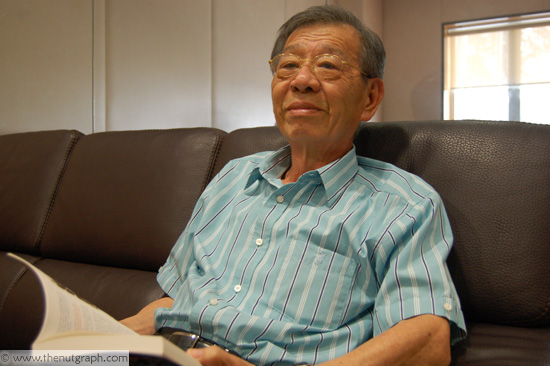
In an interview with The Nut Graph at his office in Bandar Utama, Petaling Jaya on 29 Dec 2010, Lim talks about his youth as part of a wealthy but struggling family. It’s an experience he likes to highlight to correct misconceptions that “all Chinese [Malaysians] are rich”. As a politician with an insider’s view of government, he also talks about how Malaysia has changed for worse.
TNG: When and where were you born?
Lim: I was born on 8 April 1939 in Tapah, at the foothills of Cameron Highlands.
What are your memories of growing up there?
In 1947, aged seven-and-a-half years, I was packed off to boarding school at St Michael’s Institution in Ipoh. Barely knew how to put on my own clothes. I was a boarder at St Michael’s until 1953, but I completed my studies there until Form 6 in 1957.
Why did your parents send you off at such a young age?
St Michael’s was highly recommended as a premier school. [It was a family tradition to send] uncles and nephews there for boarding school.
What are your memories of growing up in a boarding school?
Living with a group of boys and becoming very close with each other. Some friendships have lasted till today. It also built my character: firstly, to be independent and independent-minded. You learn to be aware of the needs of others when you live in a community, rather than be self-centred. I think it built socialising skills, which helped me in my political career later.
The St Michael’s brothers also taught us values and love for our country, [which have shaped] the multiracial stance that I have upheld all these years. [Students of all] races attended this school. Although it was predominantly Chinese, it never crossed our minds to group ourselves into racial categories. We were one community of Michaelians.
You spent so much time away from home. What do you remember of your parents?
Ipoh was 36 miles from Tapah. We only went home during the school holidays, but once a month, father used to come up and take us out for lunch and to the pictures on a Sunday afternoon.
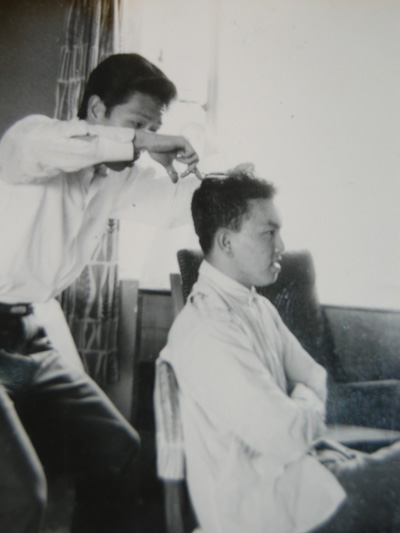
[Although I was] seven and a half, I didn’t feel lonely. I had an elder brother and my uncles who were also studying at the school, and they looked after me. With the new friends that I made, it was quite an enjoyable time.
We are all pendatang in some sense. Can you trace your ancestry?
Even in those days we didn’t consider ourselves as immigrants. By that time, I was already the third generation [of those in my family born in Malaya]. And being in an English school, you never knew anything about China. Both my parents are from Fujian province. My mother’s old house was in Quenzhou. She was born there, but my father was born in Tapah.
How did they meet, then?
As far as I know, it was some form of arranged marriage. Rich man’s son and rich man’s daughter. My grandfather was considered quite rich in the early 1920s, 1930s. We were a family of merchants, shopkeepers. My paternal grandfather made his money as a provisions shop owner supplying the workers who built the road from Tapah to Cameron Highlands. I never knew my maternal grandfather.
[Rubber and tin mining] were the businesses those days. My grandfather invested in rubber plantations. My father went into tin mining. He wasn’t an aggressive miner, he just made do. But my grandfather left him some properties in Tapah, and I think he lived by that, because he wasn’t successful as a tin miner. And by the time we finished our university education, I noticed that my father had already sold all his properties in Tapah to fund his children’s studies overseas.
I studied in Belfast and had two other brothers studying in England, one on a Colombo Plan scholarship, the other on a National Electricity Board scholarship. I was the only one sponsored by our father. During the tin control of the 1960s, our father was short of cash, and we three brothers lived on two scholarships. You could say we were a well-to-do family, but not that well off as my father still had to struggle to put most, if not all, of his 16 children through school.
You had 15 siblings?
My father had two wives. My own mother died in 1952 when I was 13 years old. There were 11 brothers and five sisters. I am the second child on my mother’s side, and third overall. We all lived together. My mother and stepmother were both [homemakers].
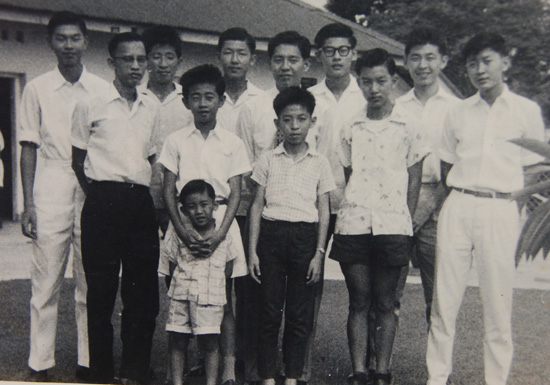
Your adolescent years were during the run-up to Malaya’s independence. What are some significant memories of the time?
None, really. For me, Merdeka was just a celebration without much understanding of its significance. I was in Form 6. It only became significant when I was in university where we students began talking with each other – Malay, Indian and Chinese students together in Belfast – about what it would take to run the country. There were 45 to 50 of us there, [including] Tengku Razaleigh Hamzah.
Why didn’t you find Merdeka significant then?
I don’t know, maybe I was not politically minded then. Except for one episode, which I’ve mentioned [before], of an incident when I was about 12 or 13 years old. I was with my father in the car, and he overtook a European officer, and was stopped. He had to apologise profusely to the European who was shouting at him. That made a deep impression. When we became independent, I only remember thinking, “Oh, this is the end of the Mats Salleh.”
Opposite St Michael’s school was the Ipoh Club, which was the sole purview of Europeans. I could see them enjoying themselves drinking and dancing away, an elitist group. It brought about feelings of alienation and resentment. But we also had the brothers in St Michael’s who were mainly Irish brothers. They were Europeans, but because of their dedication and fairness in running the school, and their discipline, they become role models whom we admired.
What about later when you were in university?
Later on, I began to realise that there were differences in feelings among the races about how the country should be run. There were Malay scholars who were on scholarship, and there was me, who was there on my father’s money. When my father had difficulty sending money to me, I would tell my Malay friends that see, not all Chinese are rich; we too, have to survive using our wits. I started to know about politics in university, through the Malaysian Students’ Society in Belfast.
I do remember meeting [Tan Sri Mohd] Khir Johari in my third year in Belfast. I asked him whether I could apply for a scholarship because my father was having difficulties sending me money. And I was told to apply and go home for an interview. And as a young man, I lost my patience and I mumbled – I didn’t shout – but I mumbled that if I could afford to fly home for a holiday, I wouldn’t be asking for a scholarship.
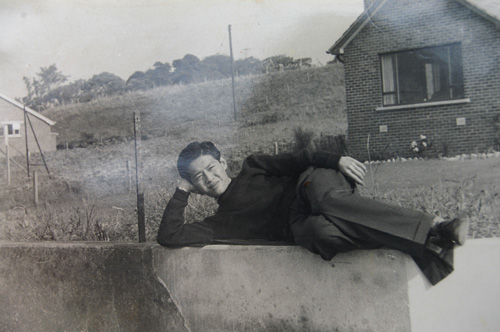
Over time, as a politician, how have you seen Malaysia change?
I think it’s gone from bad to worse. It’s the racial and religious politicking … There is religious politicking on the Malay [Malaysian] side, and racial politicking on both sides, not only Malays, but also Chinese [Malaysians]. Much of it was through the Chinese educationist movement which wanted to protect Chinese [vernacular] education, especially after the Razak Report of 1956-57, where they misunderstood that we were going for one stream rather than keeping the three streams of Bahasa, Chinese and Tamil.
They thought there was a move to remove the Chinese schools. The Razak Report had called for maintaining the vernacular schools. But over the years, by way of implementation, not much finances were put into the vernacular schools, including the mission schools. Maybe those were early years and the government wanted to build schools in places where there were no schools, like the rural areas. So a lot of finances were spent on building new schools. The old schools were left very much on their own. So the feeling, the perception, was that vernacular schools were not part of the education system. And that caused the Chinese educationists to feel that they had to protect Chinese education.
In the late 1980s at a Chinese school function, I appealed to the community to stop using negative [words] like “protect” and “defend” Chinese schools. Instead, they should call for the promotion and development of Chinese education in Malaysia. I told them, you do not need to defend Chinese education, because it is going to be in demand in years to come, with the opening of East Asian economies. One day, it will be a language of commerce, just like English, in this East Asian region.
I was right. You don’t have to protect it anymore … I won’t say that it has become a language of commerce yet, but it has become a language of use, that people other than the Chinese also want to study it.
We went through a period of early nationalism based on “satu bangsa dan satu agama”, which was based on the official religion – Islam – and bangsa, which is attached to language. And mark my words, the official language should be called bahasa kebangsaan, rather than bahasa Melayu.
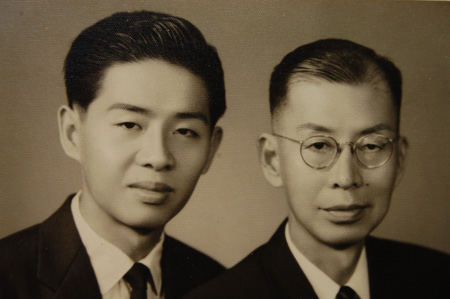
But in the nationalism of the early Merdeka period, right up to even 30 years after Merdeka, the push from politicians as well as administrators was left unchecked and brought about resentment from other races. Unchecked, until it became a forced nationalism based on “satu bangsa, satu agama dan satu negara”, the slogan of Umno.
I would consider the civil servants worse than politicians; sometimes they are more racial and religious than the politicians themselves.
What do you think is the role of vernacular education now, in the context of nation building?
It is firstly an issue of quality education. [After] the English schools were nationalised into Bahasa schools or sekolah kebangsaan, the standard kept dropping. Now, all my grandchildren go to Chinese schools. Which should not be, if the standards of sekolah kebangsaan had been maintained, if more English had been retained. The sekolah kebangsaan would then remain.
I would say that now, 90% of Chinese [Malaysian] parents, whether English-educated or Chinese-educated, prefer to send their children to Chinese schools. Chinese schools have maintained their educational standards. And as long as Umno and the civil servants maintain the quota of Chinese schools and not allow new ones to be built, other than shifting a rural Chinese school to become an urban Chinese school, there will be resentment among the Chinese community.
Quality of education and fairness, and corruption in the economy – these are the two main things that irk the Chinese [Malaysian] community. I’ve said this for so many years in the cabinet. If they cannot see it, one day they’ll pay for it. They paid for it in 2008. And yet, the Umno politicians and the administration … I keep on saying “and the administration” because the civil service, as the implementers, have not been directed to change. Even with government transformation and whatever you have. They are the worst. They sometimes embarrass Umno. Be it higher or lower administrators.
How can it be, in our ministerial allocations, we give money to Chinese temples, but the officer down the line cancels it? As a minister, our request for allocations can be cancelled!
This was your experience?
Yup. Why? Because he says he is a Muslim, he cannot promote another religion or he will not go to heaven. He should not be an administrator then.
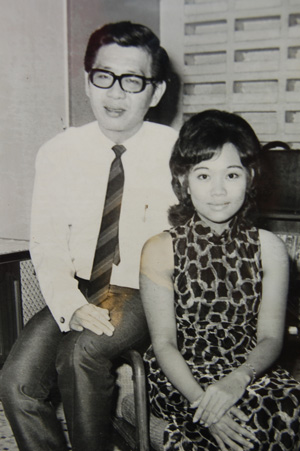
That’s why I stress the point about my student experience, about how three brothers had to live on two scholarships, to make the point that not all Chinese [Malaysians] are rich. We may have studied overseas, but it doesn’t mean we are rich. Mothers struggle to wash clothes or work as a hawker to put their kids through university. But civil servants think that all Chinese are rich. Fair game lah [then] to ask for under-table money.
Looking back on your career, with regards to nation building, is there anything you would have done differently as a politician?
I suppose I should have taken a sterner stance against corruption and unfairness, and not just on education alone. I fought hard to get vernacular schools to be included into the education system with the Education Act 1996.
I was on the cabinet committee on education. I had argued for months, for years, with [Datuk Seri] Anwar [Ibrahim], the then education minister. [I also argued a lot with the officers]. At one stage, I blew my top and told the civil servants, look, you want to close down Chinese schools or not? If it’s a policy, then put it in the Act. If you don’t want to, then put it in the Act that Chinese schools are to be promoted and developed.
It came to that stage. I said, you want to close down Chinese schools? Then say so. None of them dared to say yes. So I said, then put it down in black and white that these schools are part of the education system. Half the time in my eight years in the cabinet committee I spent arguing with the officers. I used to tell my [Gerakan] central committee members that I vomit blood every time I attend that cabinet committee.
When [Datuk Seri] Najib [Razak] became education minister, he said, “Keng Yaik, Bahasa Malaysia is bahasa utama, but it’s not ‘bahasa sahaja’.” He understood that Bahasa Malaysia was the bahasa pengantaraan yang utama, but that the other languages would be recognised.
That was the final thing to be settled after Najib became education minister after the 1995 elections. Within two meetings, we agreed on the Education Act. With Anwar, we fought for four, five years, nothing. He wanted to play popular Malay politics.
Today, all the laws state that the national language is Bahasa Malaysia, except the constitution, which states it as the “Malay language”. You will still get some government officers who will say it is Bahasa Melayu. So we have a lot of these floating dichotomies, too political a hot potato to make a decision on, so it’s left to float. And when it’s left to float, it’s left to individual administrators to interpret. That’s our politics lah.
You said just now, looking back, that you should have taken a firmer stand against corruption. Why do you say this now?
There were a lot of things decided on projects which were not known to the cabinet. Decided by the finance ministry and the prime minister. And not tendered out. When they came to cabinet, it was already a fait accompli.
What would you have done then?
He was too strong and too dogmatic, [Tun Dr] Mahathir [Mohamad]. There were none of these during [Tun Abdul] Razak‘s days. The privatisation, and the concessionaires, these were some things that should have been more transparent.
I would say, 2008 opened my eyes tremendously. I was from the post-1969 era. There was a tsunami in ’69. The years since then were guided by the need for stability, meaning, don’t raise issues that could rock the boat or shake the solidarity of the Barisan Nasional (BN). The BN was running the country well, based on the concepts that Razak espoused: equal representation, equal voice, no matter how big or small your party was.
But slowly, because of Mahathir’s intellectual and political dominance, these principles were left unattended. And the democratic space for dissent narrowed tremendously.
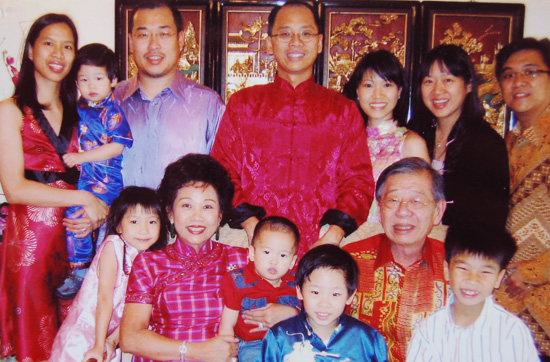
What kind of Malaysia would you like for future generations?
Allow, insist even, that the people mix more freely. Build on our commonalities and not on our differences. Be moderate and not extreme. Whether it be helping Malay [Malaysians] who are less well off, or helping other races who are less well off.
Promote a tolerant Muslim society rather than one that is dogmatic and extreme. Be inclusive rather than exclusive. And that means you have to push for people to mix. Go against the negativity. Help the Malays if they need help, but you must also help the poor Chinese and Indian [Malaysians]. Allow Islam to develop, but let it be a moderate Islam and allow other religions to exist. ![]()
The book Found in Malaysia, featuring 50 of our best interviews plus four previously unpublished ones with Datuk Zaid Ibrahim, Tan Sri Rafidah Aziz, Datin Paduka Marina Mahathir and Ramli Ibrahim, is now available at all good bookstores for RM45.


Andrew I says
A lot of idealism and hindsight. Where were you when Anwar pulled out all the stops?
Frankly, all that Penangites have been hearing since 2008 are excuses. Our hands were tied, this, that and the other. Koh was your successor, like Badawi was Mahathir’s. Your choice, not ours.
But then his federal ambitions rose above all else, and the state power transition became the Aesop fable of the dog who saw his own reflection.
Move on. Penangites have…and so has Mahathir.
kamal says
In the end, you can’t fault a man if he is being honest. Good interview. I think Lim has done as much as he felt he could at that time. I find his reflections on the direction we have taken to be frank. It’s not just that he was a minister and was “close” to the workings of government, he has also seen the transition from colonial period to the present. These insights have some value.
But, above all, his honesty and criticism of what went wrong, from the Razak to Mahathir administration, should be admired. In order to correct ourselves we need to know where we went wrong.
mike says
A decent shot at explaining our recent past. But readers tend to blame, such as Andrew’s comments. They cannot see past their own bias. I wonder why.
For me, the relevant parts are where the political actors are still active. For instance, comparing Anwar with Najib:
“When [Datuk Seri] Najib [Razak] became education minister, he said, “Keng Yaik, Bahasa Malaysia is bahasa utama, but it’s not ‘bahasa sahaja’.” He understood that Bahasa Malaysia was the bahasa pengantaraan yang utama, but that the other languages would be recognised.
That was the final thing to be settled after Najib became education minister after the 1995 elections. Within two meetings, we agreed on the Education Act. With Anwar, we fought for four, five years, nothing. He wanted to play popular Malay politics.”
Far as I can tell, Lim Keng Yaik has retired, so there is no known motive to varnish. Therefore, taking his statement at face value, it is obvious to me these two politicians – Anwar and Najib – approaches public policy differently: Populism vs Moderation (lack of a better word).
Fast-forward to 2011, has Anwar changed his stripes? Populism got him followers for PKR. But what policy exactly has PKR produced? Jokes, mud-slinging at the PM, or the PM’s wife, or anybody else who opposes him, and endless rounds of legal action, within and without the party. Is that what we Malaysians think of as public policy ideas?
My point is simply this: The injustice faced by Anwar under Mahathir was real. It is the very same grievance felt by many under the Mahathir administration – endless curtailment of individual freedom. Lim Keng Yaik also alludes to it.
But the appeal of Anwar, his populism today, is the wearing of such grievance as a badge of pride, a badge of survival. Good for him he survived Mahathir, though not many did. But, did he not voluntarily, indeed, actively seek to serve under Mahathir? So, how does Anwar’s poor judgement – of Mahathir’s character and his own ideas when he was with BN – fit into the currently popular perception as a good leader for Malaysia?
Anwar has not, and probably will not, ever succeed as a leader – with PKR or otherwise. The allure of being repressed by Mahathir is now wearing off. Given a chance, since 2008, Anwar has failed to compete in the marketplace of ideas – for lowering corruption, for increasing growth in Malaysia and many other necessary public policy ideas.
I honestly doubt Anwar will survive the next election, unless of course, he “pulls out all stops”, and away the illiterate masses go again, following the piper down the drain.
Andrew I says
“I honestly doubt Anwar will survive the next election, unless of course, he “pulls out all stops”, and away the illiterate masses go again, following the piper down the drain.”
Hmm…wonder why these illiterate masses still exist, given that we are/were striving to be a hub of educational excellence.
“Given a chance, since 2008, Anwar has failed to compete in the marketplace of ideas – for lowering corruption, for increasing growth in Malaysia and many other necessary public policy ideas.”
Well, DAP seems to have managed to attract a fair bit of investment into Penang. As for ideas, I would say it’s hard to put a claim on them. The important thing is the ability to force someone’s hand and make them do it.
In this case, change.
JW Tan says
Gerakan under Lim Keng Yaik may not have changed much in government, but I think what this interview illustrates is that they protected some of what Chinese Malaysians and Indian Malaysians have. The situation could have been worse.